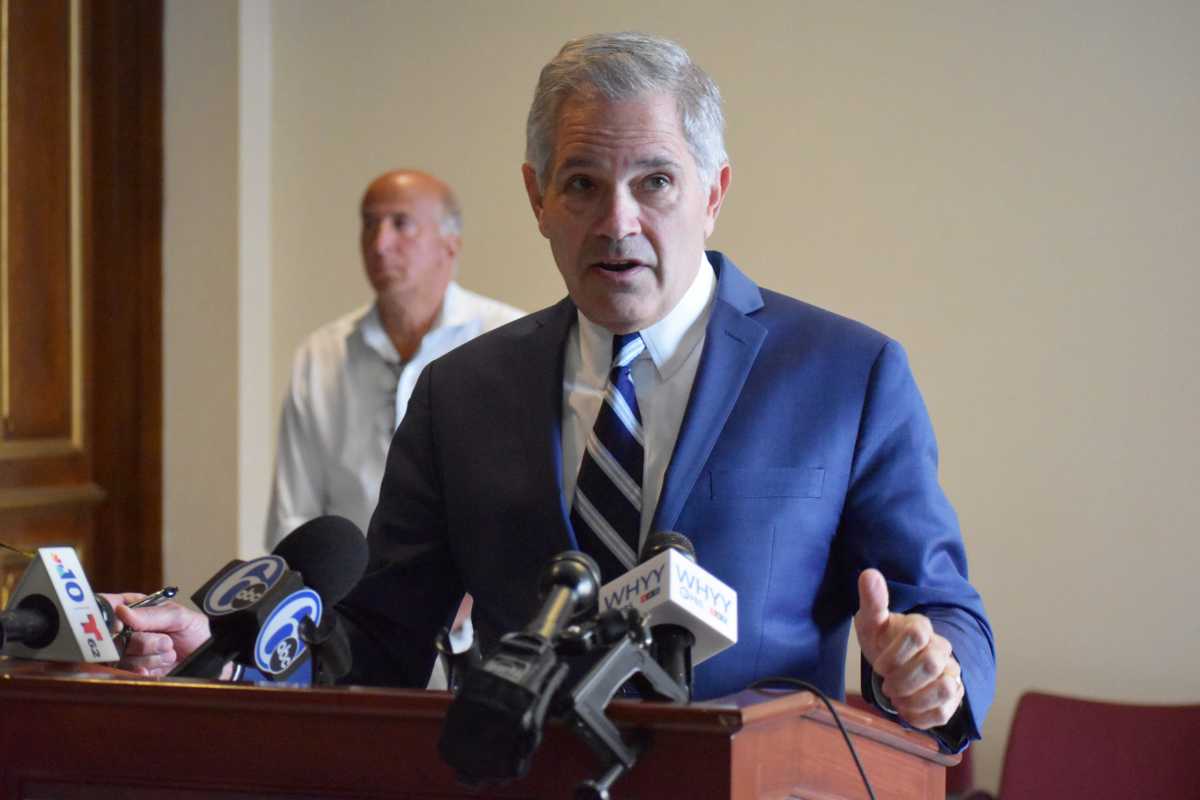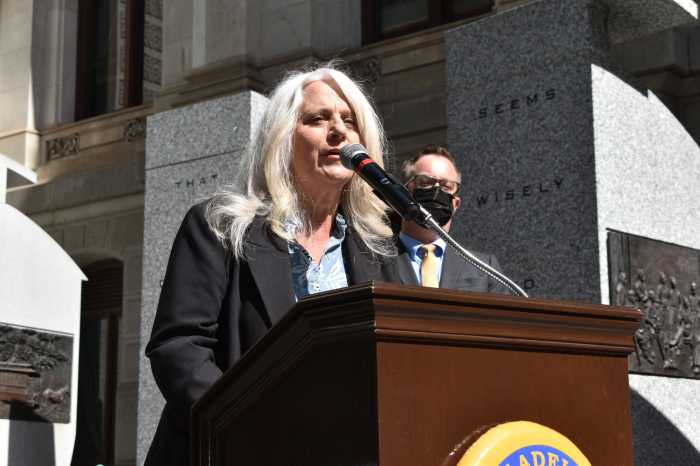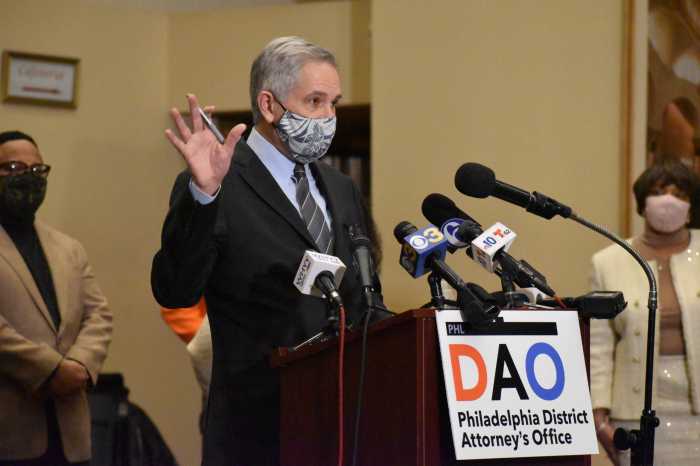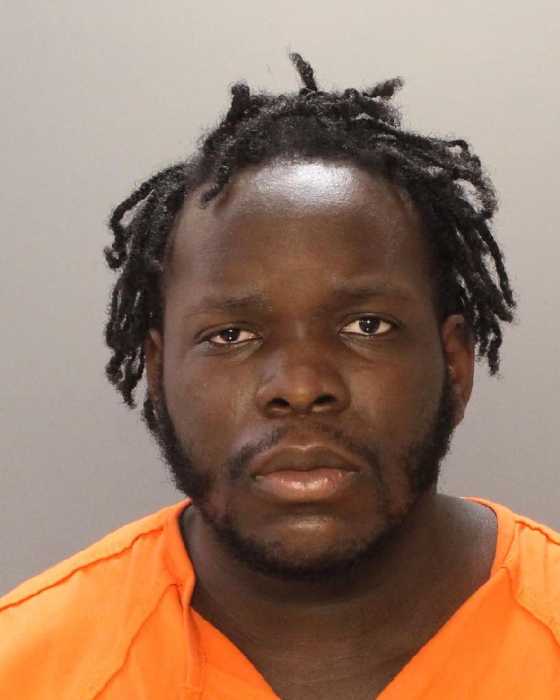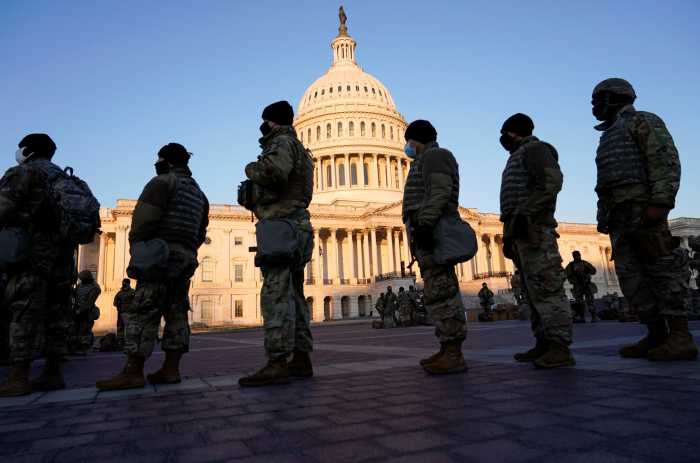Pittsburgh’s leading prosecutor on Monday joined District Attorney Larry Krasner in filing legal action against Pennsylvania Attorney General Josh Shapiro over a proposed $26 billion settlement with opioid distributors and a drugmaker.
Shapiro helped negotiate a multi-state agreement, made public last month, with the big three distribution companies — Cardinal, McKesson, and AmerisourceBergen — and Johnson & Johnson, all of which have been accused of fueling the opioid epidemic.
The settlement would be paid out on a sliding scale, depending on how many states and localities agree to resolve outstanding litigation against the companies.
Much of the payments would come from the distributors, who would have 18 years to fulfill the terms of the agreement, the second-largest cash settlement in American history.
Pennsylvania, if all counties sign onto the deal, would be in line for $1 billion, according to Shapiro’s office.
“What the attorneys general have gotten is not enough,” Krasner told reporters Monday. “It is too low. It is too slow. And it is not at all clear that money will even show up.”
Krasner said his staff have calculated that Philadelphia would receive, under a “best case scenario,” $5 to $8 million a year, which he claimed would do “nothing” to address substance abuse in the city.
“What this deal amounts to is not enough to pay to bury the people it has killed,” he said.
Those numbers have been disputed by the Attorney General’s Office. Molly Stieber, a spokesperson for Shapiro, said Philadelphia would be poised to get “a very large chunk of the settlement money” as the commonwealth’s largest city.
Money could begin flowing into Pennsylvania in April, if the agreement is finalized, and the state would get $232 million in the first year, assuming it receives the maximum pay-out.
Krasner and Allegheny County District Attorney Stephen Zappala have filed lawsuits in a state appeals court to ensure that the Attorney General’s Office cannot compel them to drop their ongoing legal action against the opioid distributors.
“The victims of this opioid crisis and the people of Allegheny County would best be served by having these matters decided by a jury in Allegheny County,” Zappala said in a statement Monday.
“Accepting a contingent settlement of possibly a few million dollars is not suitable,” he continued.
Krasner echoed that sentiment, saying “Philadelphia juries know what something like this is worth.” His office has been pursuing a case against the companies since 2018.
Stieber said the Attorney General’s Office has no intention of forcing Krasner to resolve his opioid lawsuit; rather, the framework of the agreement allows counties to “opt-in” to the settlement. Krasner said he wants those assurances in writing.
States have until Aug. 21 to join the settlement, and, from there, cities and counties will have an additional 120 days to sign on.
The deal, Krasner said, allows the distributors, as well as Johnson & Johnson, to drop out of the settlement by declaring bankruptcy or due to low profits.
During a Monday morning news conference at his Center City office, Krasner flipped out the inside of his pockets, mimicking the pharmaceutical corporations.
Mayor Jim Kenney has also criticized the agreement, saying that negotiators did not give “Philadelphia and other communities that have been most directly impacted by the crisis a meaningful voice and opportunity to participate.”
Krasner said the saga represents “one more example of how traditional prosecution has favored the wealthy and has disfavored marginalized people of all kinds.”
All of the settlement money would be directed to treatment for drug users and prevention, and it includes court orders intended to reign in the companies in the future.
Shapiro has acknowledged that the deal does not cover the full cost of the opioid crisis, though he has said it is the best way to get relief to people right away. His office noted that none of the local lawsuits against the companies have trial dates.
The distributors, who have declined wrongdoing, allegedly pumped hundreds of millions of prescription opioids into Philadelphia from the mid-2000s onwards without proper oversight.
Fatal overdoses skyrocketed in the city beginning in 2014, and last year’s death toll of 1,214 was the second-highest ever recorded. Opioids were present in more than 80% of the fatalities.



